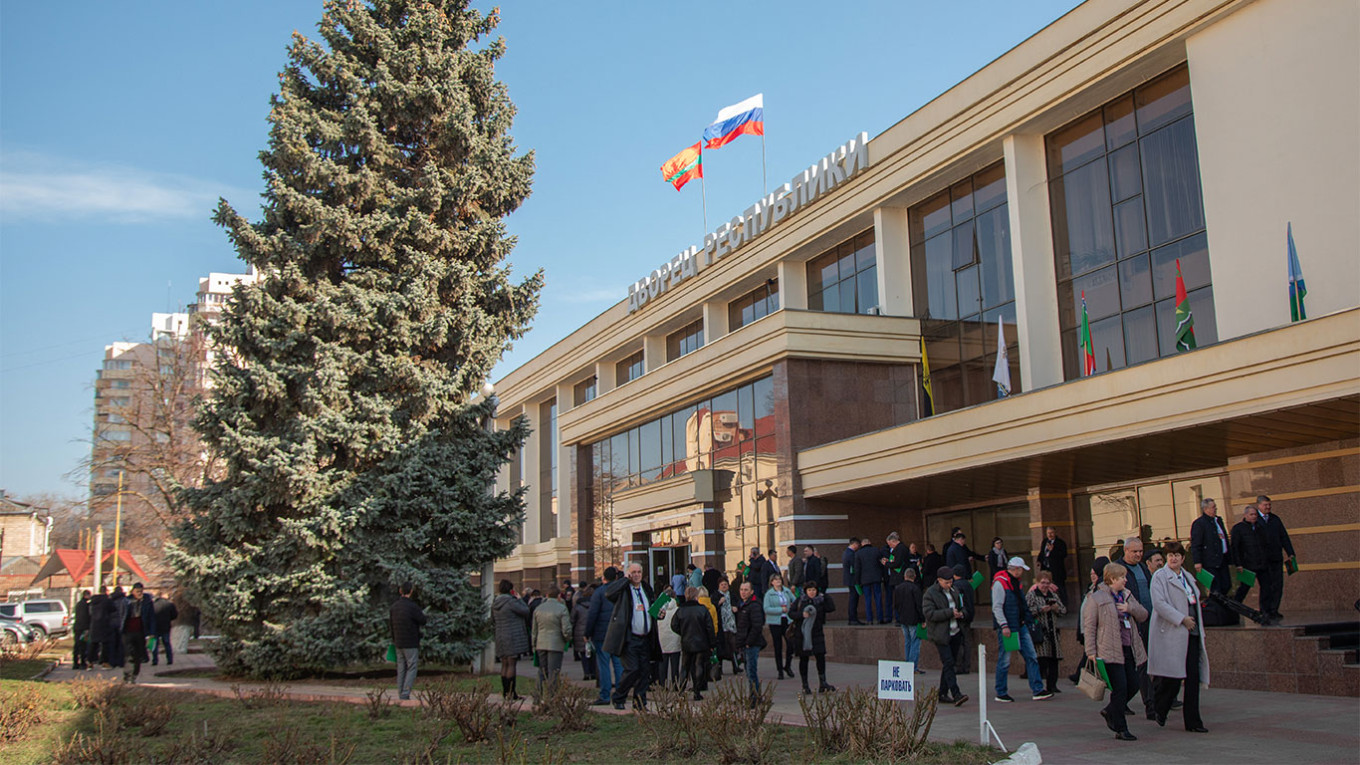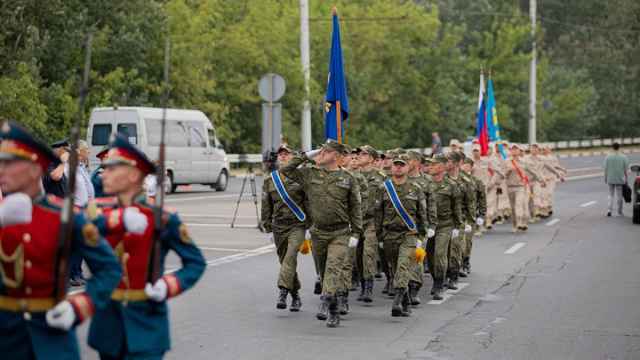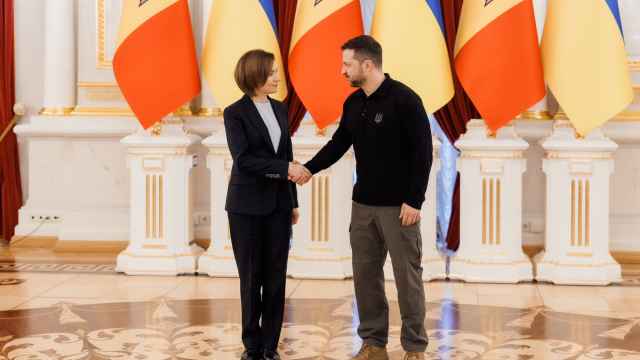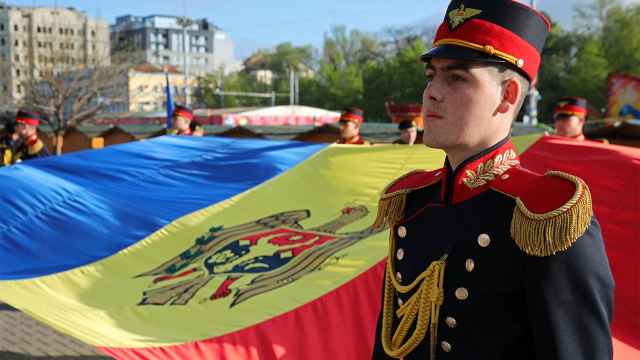Moldova’s pro-Russian breakaway region of Transnistria has made international headlines in recent weeks after its leadership called on Moscow to “protect” it from Moscow against alleged pressure from Chisinau.
While some experts warn that Transnistria — a sliver of land bordering Ukraine that hosts a small contingent of Russian soldiers — could act as a conduit for Russia to foment regionwide instability amid its war on Kyiv, others remain skeptical.
The “protection” request “is basically a message from Tiraspol and Moscow that circumstances change, especially with the invasion of Ukraine,” said Cristian Cantar, an associate professor of international relations at Oakland University from Moldova.
“If circumstances change, especially in Russia's favor, that would then allow an escalation that could be legitimized by these narratives.”
Since Russia’s full-scale invasion of Ukraine in 2022 sent shockwaves through Moldova, one of Europe’s poorest countries, the country has seen a surge in support for moving out of Russia’s orbit and closer to the West. Moldova entered European Union accession discussions in 2023 and its citizens will vote later this year on joining the bloc.
While Transnistria has kept a relatively low profile during Moscow’s invasion of Ukraine, fears that the breakaway region could become a flashpoint between East and West regularly surface as the war drags on and Moldova pursues EU accession.
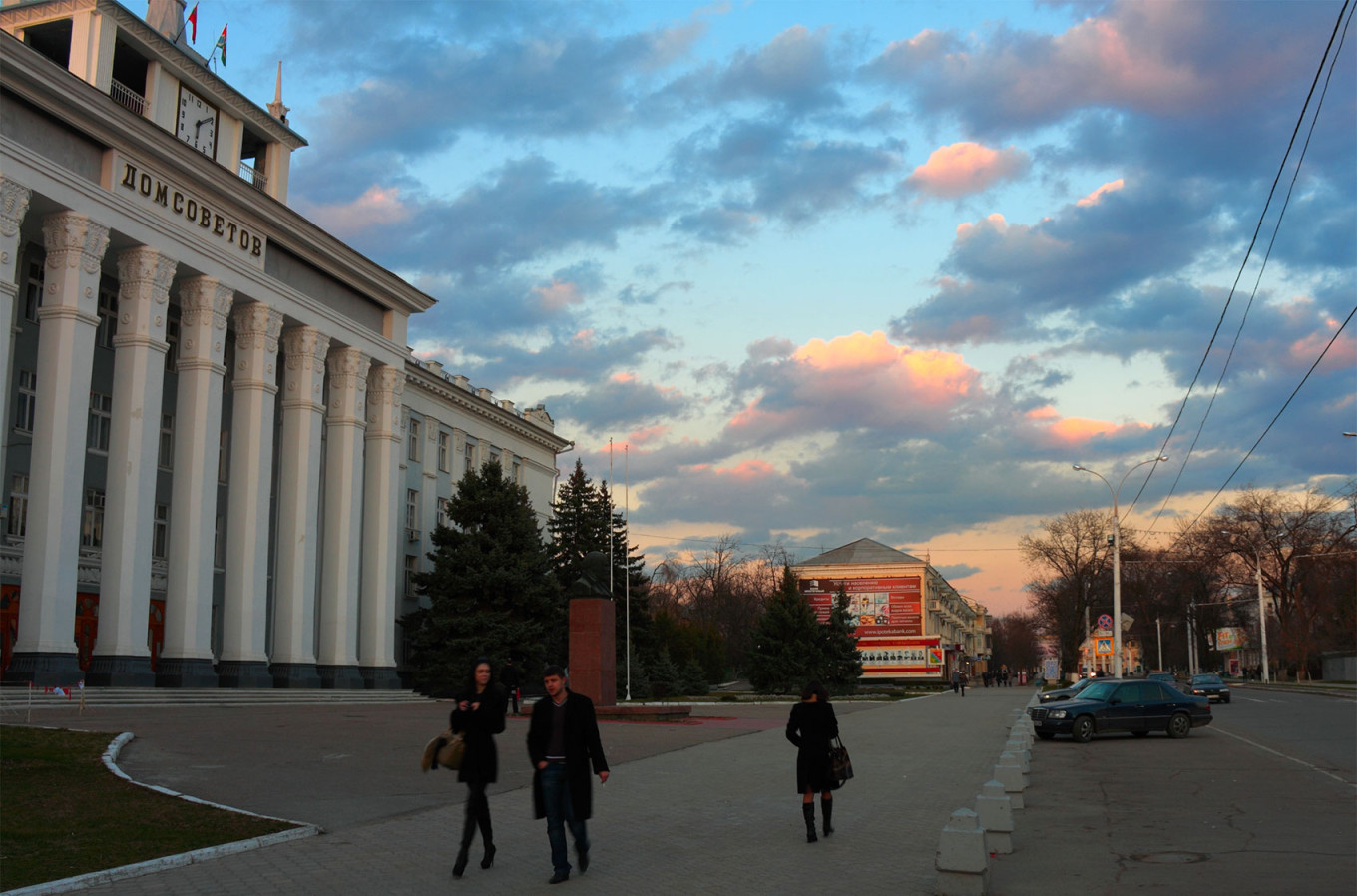
Last month, Transnistria opened six polling locations for Russia’s presidential election that unsurprisingly handed President Vladimir Putin six more years in power. Half of the region's population of 469,000 hold Russian passports.
The decision directly went against Moldova’s government, which ordered that the only polling station in the country would be at the Russian Embassy in Chisinau.
Transnistrian authorities on March 17 claimed that a Ukrainian drone struck one of its military helicopters. Ukraine’s military intelligence directorate slammed the request, calling it a “Russian provocation." The aircraft has reportedly not been in working condition for years.
The news came after Transnistria appealed to Russia’s parliament for “protection” against what it called heightened pressure from Moldova.
‘They want to show they are still relevant’
Siegfried Muresan, chair of the European Parliament’s delegation for relations with Moldova, downplayed the threat of an escalation in Transnistria.
“There is, at this moment, no risk of destabilization of the situation in Moldova,” Muresan told The Moscow Times.
“The self-proclaimed political leaders from Tiraspol want to show that they are still relevant and try to avoid fulfilling their fiscal responsibility towards Moldova. This is how they try to negotiate as many benefits as possible from the national authorities,” he said.
At the same time, Muresan said Transnistria’s request for Russian protection is a clear reason to accelerate Moldova’s accession to the EU.
That way, he argued, Transnistria’s people will “see the benefits from the good relationship between the Republic of Moldova and the European Union, meaning they will want to support a pro-Russian local leadership that wants to destabilize the situation in the region less.”
After Transnistria asked for Russia's “protection,” Moscow’s Foreign Ministry referred to its population as Russia’s “compatriots” and said it would carefully consider the request — leading some to speculate over whether Russia planned to occupy Transnistria as it is doing with Ukraine's occupied territories.
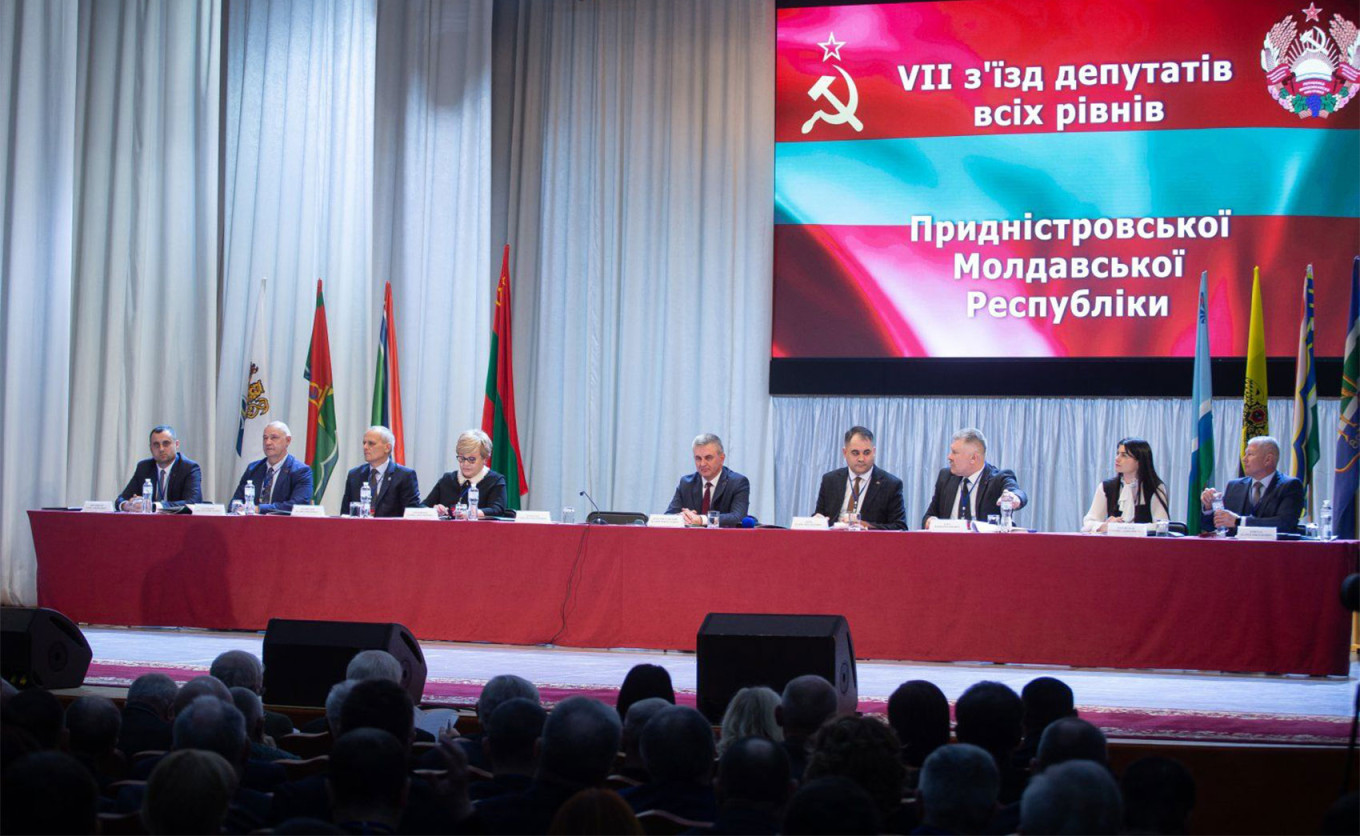
Transnistria held a referendum on joining Russia at its last “special congress” in 2006, where over 95% of voters backed integration with Russia. Moscow never publicly responded.
Though Russia has a consulate in Transnistria — a region internationally recognized as part of Moldova — Moscow has stopped short of recognizing it as an independent state.
Moldovan officials responded to the Russian election polling stations in Transnistria by expelling one employee of the Russian Embassy in Chisinau.
An estimated 46,000 people in Transnistria — just 20% of Russian passport holders in the region — voted in the Russian election last month, the lowest turnout of the past four Russian elections.
A significant line was reported at a polling station in Tiraspol at noon on March 17, when supporters of Alexei Navalny called on people to vote in a protest called Noon Against Putin.
In addition to hosting Russian polling places, Transnistrian authorities have cracked down on pro-Ukrainian sentiment since the outbreak of the war in Ukraine.
In June 2022, Tiraspol resident Victor Plescanov was jailed for hanging a Ukrainian flag outside his home. He remains in custody and few details of the charges against him are known.
Valeria, 22, a native of Tiraspol currently studying in Chisinau, said the increasingly tense situation in her home region “does not allow you to make plans for the future. There are fears because you don’t know what to expect. For this reason, everyone is trying to leave and live abroad.”
In January 2024, Moldova imposed customs taxes on Transnistrian imports and exports, meaning companies now have the same financial responsibilities as any other in Moldova.
Transnistria had been exempt from this rule for the past two decades and the region’s request for protection was suggested to have been linked to its enforcement.
“I believe that Transnistrian entrepreneurs do not want to follow the rules and laws that apply on the territory of Moldova,” said Valeria. “They do not want to lose money, they don’t want to pay taxes and for this reason, they pretend that they need protection.”
Keith Harrington, a lecturer in Soviet history at Trinity College Dublin and a specialist on Transnistria, said that the breakaway region has “virtually no bargaining power.”
“Russia is not in a position to give real help and the West is backing Moldova,” said Harrington. “Asking for Russia's assistance is just a ploy. They have done it before, such as in the 2006 referendum.”
Kremlin spokesman Dmitry Peskov said Russia is “open” to providing assistance to Transnistria but stressed that “we prefer settling all issues without any exceptions by means of a dialogue, a political dialogue.”
Chisinau has taken a measured response to Transnistria’s plea for protection, keeping with its approach since the start of the full-scale invasion of Ukraine.
“From their perspective, they just have to wait and keep applying pressure to the separatist regime. Right now, the tide is turning in Moldova's favor,” said Harrington.
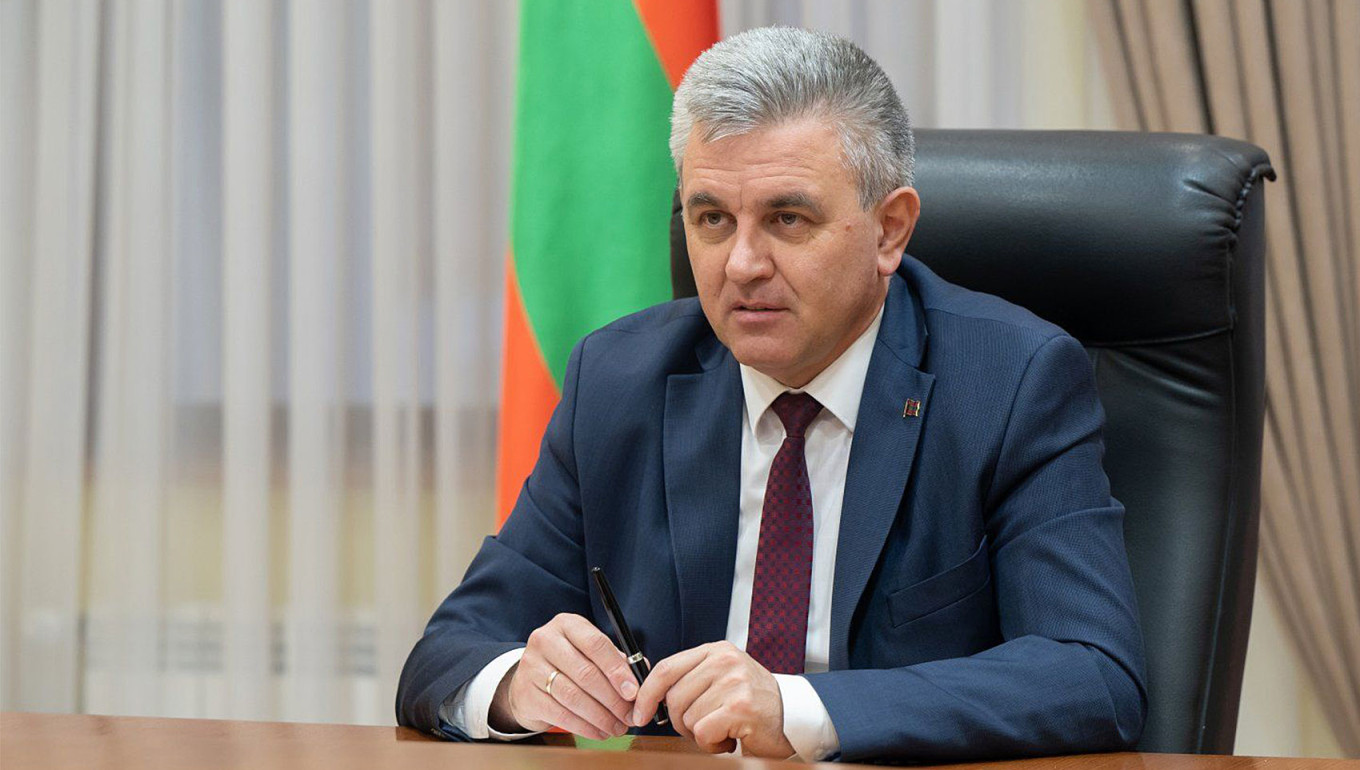
An estimated 1,500 Russian troops have been stationed in Transnistria since a two-year conflict between Russian-backed separatists and pro-Moldovan forces following the breakup of the Soviet Union.
However, most of the military equipment there dates back to the Soviet Union and is poorly maintained, and Russia cannot access the landlocked region to deliver upgrades.
Moldovan President Maia Sandu said in a June 2023 press conference that Chisinau would not abandon hope for a future resolution to the frozen conflict.
Transnistria’s future has been a point of international speculation, especially with negotiations for Moldova’s accession to the EU in full swing.
“We are working in both directions: to fulfill the conditions formulated by the European Commission, to implement the reform program, and to resolve the Transnistrian conflict," Sandu said.
European Parliament member Muresan said there is no reason to be pessimistic given that Transnistria is already deepening its integration with the EU.
“Companies in the Transnistrian region exported more than 70% of their goods to the EU market in 2023,” he said.
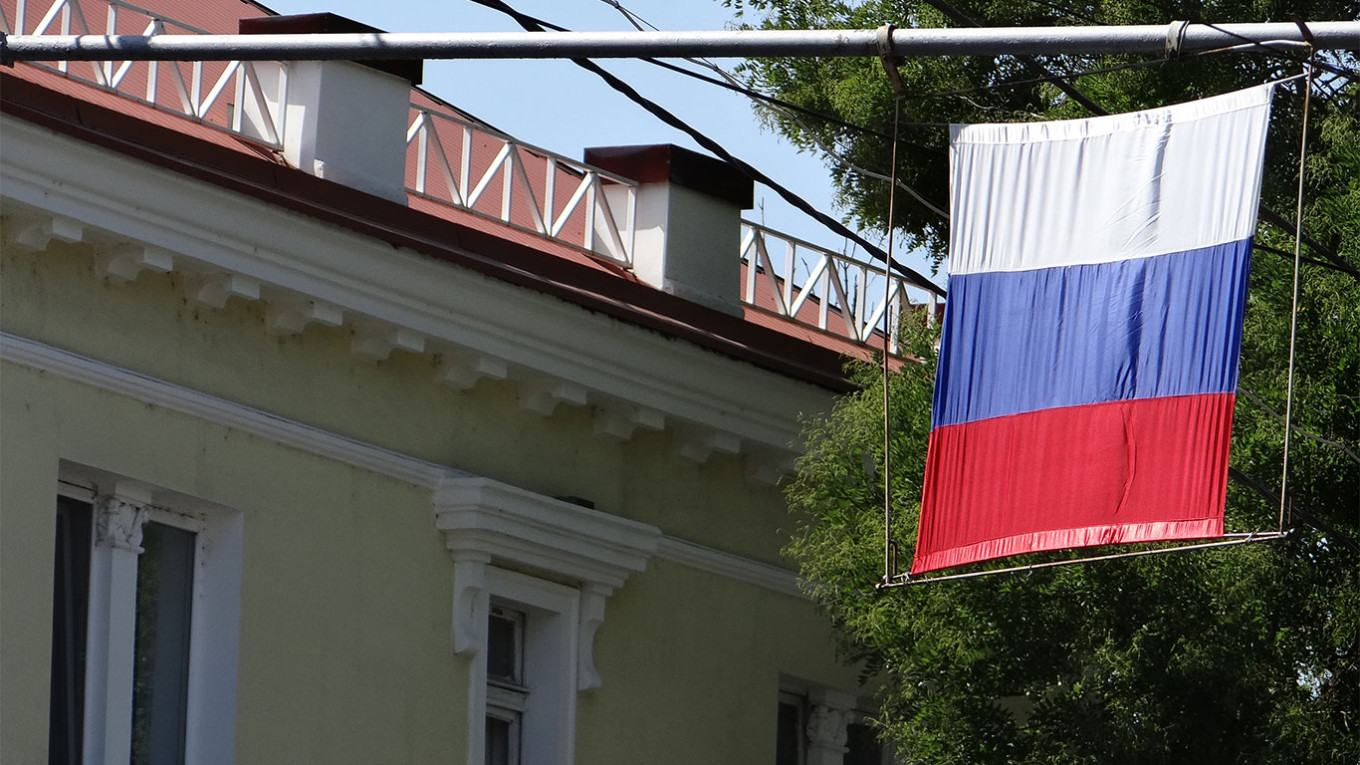
However, he said, the situation in Transnistria stands as a reminder “of what could happen subject to developments in Ukraine. This is why we must continue supporting Ukraine and supporting Moldova.”
For 21-year-old Chisinau resident Igor Cepoi, who grew up hearing the narrative that Transnistria poses a threat to Moldova, the latest tensions are nothing new.
Cepoi works for Youth Media Center Chisinau, which creates engaging online content that promotes critical thinking for Russian-speaking Moldovans.
Language can be a contentious topic in Moldova. Many Moldovans speak Romanian as their first language, with Russian as their second. In pro-Russian regions like Gagauzia, Romanian is spoken and understood much less.
Last month, Russian Foreign Minister Sergei Lavrov accused Chisinau of “canceling everything Russian" and "discriminating against the Russian language" after Transnistria requested protection.
“Like Transnistria, Moldova has a problem in that purely Russian speakers are vulnerable to Russian propaganda,” said Cepoi.
But Cepoi said he was not worried about tensions over language — or the geopolitical tug-of-war at play between Moldova and Transnistria — escalating into something wider.
“In reality, Transnistria is not a threat, most of their Soviet army is very old,” Cepoi said. “They are pensioners now.”
A Message from The Moscow Times:
Dear readers,
We are facing unprecedented challenges. Russia's Prosecutor General's Office has designated The Moscow Times as an "undesirable" organization, criminalizing our work and putting our staff at risk of prosecution. This follows our earlier unjust labeling as a "foreign agent."
These actions are direct attempts to silence independent journalism in Russia. The authorities claim our work "discredits the decisions of the Russian leadership." We see things differently: we strive to provide accurate, unbiased reporting on Russia.
We, the journalists of The Moscow Times, refuse to be silenced. But to continue our work, we need your help.
Your support, no matter how small, makes a world of difference. If you can, please support us monthly starting from just $2. It's quick to set up, and every contribution makes a significant impact.
By supporting The Moscow Times, you're defending open, independent journalism in the face of repression. Thank you for standing with us.
Remind me later.


